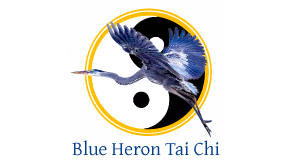
We all know the old joke: A tourist stops an old man on the street in downtown Manhattan.
He asks: “How do I get to Carnegie Hall?”
The old man wags a finger and replies: “Practice, practice, practice!”
One may ask, “Why practice? It’s just the same old stuff over & over.”
Well it’s more than that. Thanks to Jerry Gordon who supplied me with an excerpt from the book Mastery, by George Leonard. It’s nice when someone puts things I’ve been thinking into concise language. It’s even better when it comes with a dose of science to help it all make sense.
Leonard says that progress in learning any new skill comes in steps. There is a spurt of progress, often followed by a relapse, and then there is a plateau. Why the plateau? Well, according to Karl Pribram, professor of neuroscience at Stanford University, the old adage of getting it into “muscle memory” isn’t far off. He explains that we are able to turn new skills into “habitual behavior systems” by deferring actions to a level deeper than conscious thought. This system involves the reflex circuit in the spinal cord, as well as various parts of the brain to which the actions are connected. This habitual behavior system makes it possible for you to do things like ride a bike, play a chord on a guitar, or even perform a brush knee left without worrying how you do them.
When you are learning a new skill, you must think about what you are doing, and you have to replace old actions with new actions that include sensing, moving, and reacting to new stimuli. This intentional effort takes place in the hippocampus of the brain. Through repetition, and intent, you finally train the habitual system to perform the new action. Once the new action has become a habit, the effort can withdraw and the habitual behavior system takes over.
So – aha! The plateau is an essential part of learning. It is the time it takes to teach your body new skills, and make them old friends, instead of new efforts. It may feel that you’re getting nowhere, but the beauty of the plateau is what is really going on at a deep level. You are putting your new skills into “muscle memory.” Once your new skills become a habit, you get to withdraw the effort of learning that particular new skill and are now free to move on to the next step.
This is what makes practice so essential. Diligent practice, even more so.
To quote a sign from the music building in Gunnison, Colorado:
Fast practice, slow progress.
Slow practice, fast progress.
No practice, no progress.
